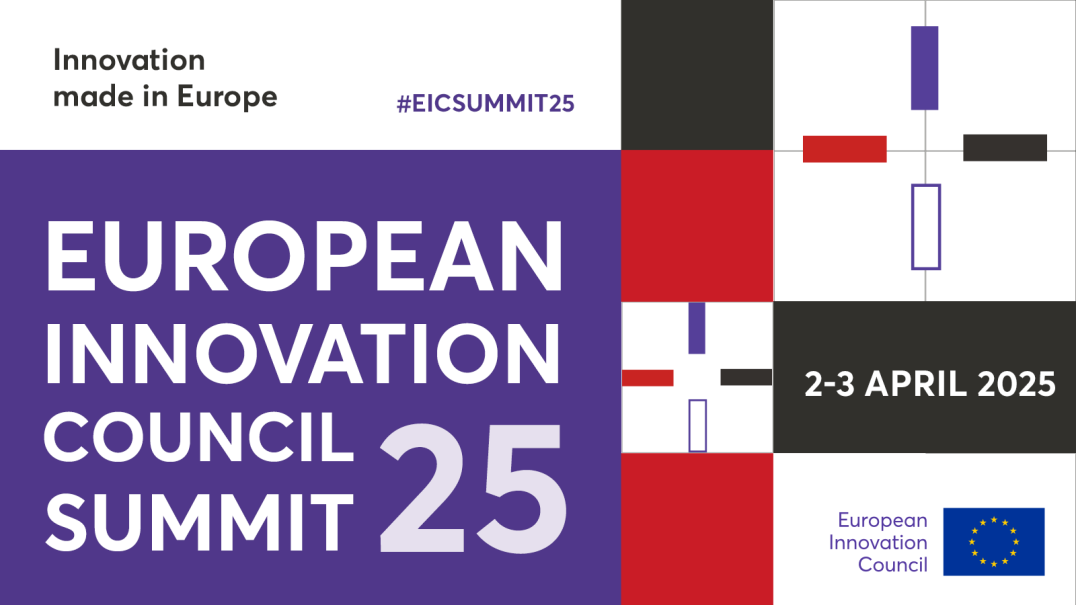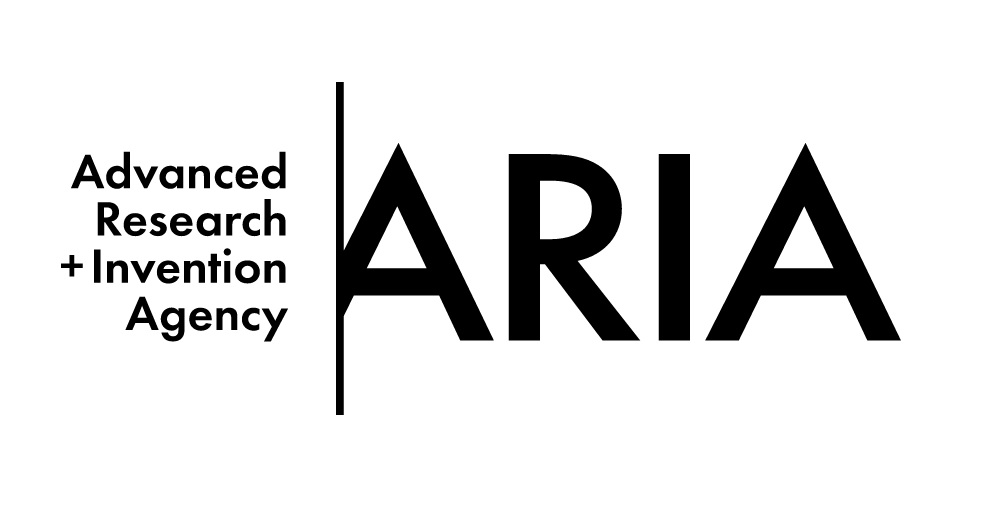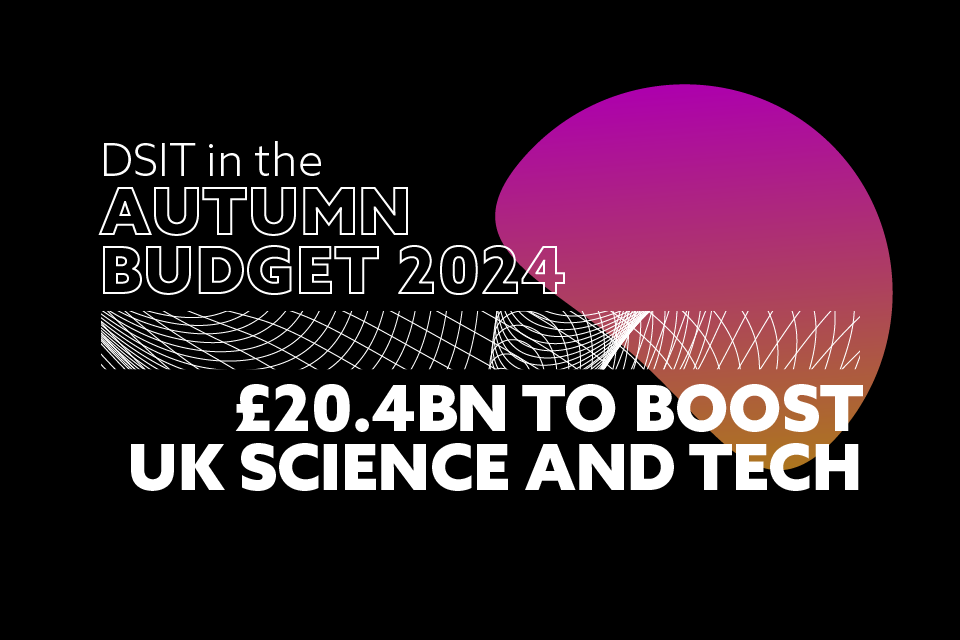Innovation Loans: Fueling Future Growth
Innovate UK has announced the launch of its Innovation Loans Future Economy Competition: Round 19, offering up to £25 million in loans to UK-registered micro, small, and medium-sized enterprises (SMEs). This initiative aims to support highly innovative late-stage research and development (R&D) projects that demonstrate strong commercial potential and the capacity to significantly benefit the UK economy.
Key Details of the Competition
- Loan Amounts: Businesses can apply for loans ranging from £100,000 to £2 million to cover eligible project costs.
- Project Duration: Projects may last up to five years, encompassing both the R&D and commercialisation phases. Successful applicants are expected to commence their projects by 1st July 2025.
- Application Timeline: The competition opened on 9th January 2025 and will close on 5th March 2025 at 11:00 am. Subsequent rounds are planned, with Round 20 opening on 6 March 2025 and closing on 7 May 2025.
Eligibility Criteria
To be eligible for the innovation loan, applicants must:
- Business Status: Be a UK-registered SME.
- Project Scope: Propose a project that leads to innovative new products, processes, or services significantly ahead of current market offerings, or present an innovative application of existing products, processes, or services. Projects can also involve new or innovative business models. The focus should align with one or more of the future economy areas outlined in the Innovate UK plan for action.
- Financial Justification: Demonstrate a clear need for public funding, the ability to cover interest payments, and the capacity to repay the loan on time.
Application Process
Applicants are required to submit a comprehensive proposal detailing the business need, technological challenge, or market opportunity their innovation addresses. The proposal should include:
- Project Motivation: Clearly articulate the main motivation for the project, including the business need, technological challenge, or market opportunity it responds to.
- Innovation and Market Differentiation: Describe how the project will lead to products, processes, or services that are significantly ahead of others currently available, including an understanding of the current state of the art and how the innovation will differentiate from competitors.
- Commercialisation Strategy: Outline the route to market, target customers or end-users, and how the innovation will lead to commercial success, including increased revenues or cost reductions.
- Project Management and Risk Mitigation: Provide a detailed project plan, including work packages, milestones, and a risk register identifying main risks and uncertainties, along with mitigation strategies.
Applicants must also complete a business and financial submission, including historic and forecast financial statements, to support their suitability to borrow. This includes profit and loss accounts, balance sheets, and cash flow forecasts covering the full loan term.
Assessment and Evaluation
Applications will be evaluated based on the quality of the project and the suitability of the business to receive a loan. The assessment process includes:
- Project Proposal Assessment: Independent assessors will score each question in the project proposal, focusing on aspects such as innovation, market opportunity, project management, and value for money.
- Initial Credit Evaluation: Innovate UK's Credit team will conduct an initial evaluation of the business's financial standing and ability to repay the loan.
- Progress Panel: A panel will review the innovation score and credit evaluation to decide on progression to detailed credit evaluation.
- Detailed Credit Evaluation: A thorough analysis of the business's financials, including a management presentation to the Credit Committee, may be required.
The final lending decision rests with the Credit Committee, which may include specific conditions. Feedback will be provided to all applicants, whether successful or unsuccessful.
Support and Resources
Innovate UK offers various resources to assist applicants, including recorded webinars on application guidance and financial submission. Applicants are encouraged to prepare well in advance, seek financial and legal advice, and ensure all parts of the application are completed accurately and submitted on time.
For more information on the competition process, contact RedKnight today.
AgriFood Innovation Showcase 2025
The AgriFood Innovation Showcase 2025, themed "Building a Sustainable Food System," is set to take place on 6th March 2025 in Birmingham. This event aims to bring together innovators, stakeholders, and experts to inspire sustainable solutions, drive collaboration, and shape a healthier, nature-positive food system.
The Significance of the UK Food and Drink Industry
The UK food and drink industry is a cornerstone of the nation's £120 billion farm-to-fork food chain. As the largest manufacturing sector, it contributes £29 billion to the economy and employs approximately 440,000 individuals. However, the industry faces pressing challenges, including environmental sustainability, health concerns, and the need for innovation to ensure a resilient and safe food system that delivers healthier, affordable food.
Who Should Attend?
This event is designed for stakeholders, individuals, and organisations involved at all stages of the food and drink supply chain. Whether you're an innovator seeking to introduce new technologies, a manufacturer aiming for sustainable practices, or a retailer focusing on healthier product offerings, the showcase offers valuable insights and networking opportunities. It's an unmissable occasion for those committed to driving change and shaping the future of this critical sector.
Why Attend?
Attendees will benefit from:
- Cross-Sector Collaboration: Engage with a diverse community to exchange ideas, forge strategic partnerships, and explore innovation opportunities.
- Showcasing Pioneering Products and Technologies: Companies and innovators will present their groundbreaking products and technologies, providing attendees the chance to connect with key industry players, investors, and potential future partners.
- Insights into Funding and Support: Learn about the benefits and impact of working with Innovate UK and Innovate UK Business Connect, including available products and services.
- Facilitated Discussions: Participate in discussions around adopting existing innovative technologies to support the 'net zero journey' in agriculture and food production.
- Supply Chain Connectivity: Connect with various parts of the supply chain to support innovation across its components.
- Research and Development Prioritisation: Identify priority areas for research and development to address current challenges.
- Showcasing Funded Projects: Explore Innovate UK/UKRI funded projects and discover opportunities for further innovation.
- Networking Opportunities: Establish new connections and engage in innovative discussions to work better together.
Event Highlights
The showcase will feature several key sessions:
- Healthy Living and Agrifood System Session: Speakers will share insights on innovation projects that address and impact this area.
- Net Zero Session: Discussions on retailers' and manufacturers' needs around net zero and the challenges they seek solutions for.
- Technologies Session: Experts and innovators will discuss advances in relevant technologies.
- SME Marketplace: An exhibition featuring SMEs, short pitch sessions, and networking opportunities.
- Business Support Zone: Information on available industry support.
- Funding Opportunities: Details on relevant funding opportunities for the sector that are live or upcoming.
- Cross-Industry Collaboration: Opportunities for the cross-pollination of ideas and sparking new innovations.
- Networking: Facilitated introductions and innovation exchanges.
To register your place at the event, click here.
UK Innovation Funding Trends for 2025
The UK innovation funding landscape in 2025 promises to be a dynamic and exciting environment, shaped by significant public and private investments. As the UK government continues to prioritise research and development (R&D) to drive economic growth, enhance sustainability, and bolster technological advancement, innovators across various sectors can expect a range of opportunities to secure critical funding.
Strategic Focus Areas for 2025
In its strategic delivery plan, Innovate UK has identified three primary domains for funding in 2025: Net Zero Innovation, Healthy Living and Agriculture, and Digital & Emerging Technologies. These areas are designed to address global challenges while positioning the UK as a leader in innovation.
- Net Zero Innovation
With over £1.2 billion committed to supporting innovations that contribute to achieving net-zero carbon emissions by 2050, the UK government is keen to accelerate the green transition. Key areas of focus include:
- Clean Energy Technologies: Investment in renewable energy sources such as wind, solar, and hydrogen is a top priority. Additionally, funding will support advancements in energy storage solutions to enhance grid reliability.
- Carbon Capture and Storage (CCS): Projects aimed at capturing and storing carbon emissions from industrial processes will receive significant support.
- Decarbonising Transportation: The government is investing heavily in electric vehicles (EVs), sustainable aviation fuels, and hydrogen-powered transport to reduce reliance on fossil fuels.
- Sustainable Construction: Funding will also target innovations that improve energy efficiency in buildings, including retrofitting older structures and developing smart city infrastructure powered by sustainable energy.
- Healthy Living and Agriculture
The Healthy Living and Agriculture domain focuses on improving public health, advancing agricultural practices, and ensuring food security. Key initiatives include:
- Medical Technologies and Pharmaceuticals: Funding is directed toward developing personalised medicine, advanced diagnostics, and treatments for chronic and infectious diseases.
- Digital Health Solutions: The integration of artificial intelligence (AI) and data analytics into healthcare systems is a critical area of investment, aimed at improving patient outcomes and reducing healthcare costs.
- Sustainable Agriculture: Projects that enhance crop yields, reduce environmental impacts, and promote sustainable farming practices will receive significant backing.
- Food Security: Innovations in climate-resilient crops, alternative proteins, and efficient water usage are crucial to addressing global food supply challenges.
- Digital & Emerging Technologies
Digital transformation is at the heart of the UK’s innovation strategy. To maintain global competitiveness, the government is prioritising investments in:
- Artificial Intelligence (AI): Responsible AI development and adoption across industries are key priorities. This includes funding for AI-driven solutions in healthcare, finance, and manufacturing.
- Quantum Computing: The UK aims to lead in quantum technologies, supporting projects that push the boundaries of computing power, cryptography, and materials science.
- Cybersecurity: Enhancing digital security and protecting critical infrastructure are vital to ensuring the integrity of the country’s digital economy.
- Advanced Manufacturing: Funding will support the adoption of Industry 4.0 technologies, including robotics, 3D printing, and the Internet of Things (IoT).
- Creative Industries: Recognising the potential of the creative sector, investments will focus on digital content creation, immersive media technologies, and gaming.
Major Funding Competitions and Opportunities
In addition to strategic focus areas, several major funding competitions are open or expected to open in 2025, providing opportunities for businesses and research organisations to secure essential financial support. Here are just a few examples of what’s available:
- Innovate UK Smart Grants
Total Funding: Up to £1 million
Eligibility: UK-registered businesses, including micro, small, and medium enterprises (SMEs), as well as research organisations working in collaboration with businesses.
Scope: The Smart Grants competition is designed to support game-changing and commercially viable R&D projects across any sector. Successful applications typically demonstrate a clear potential for significant economic impact, job creation, and technological advancement.
- Innovation Loans Future Economy Competition
Total Funding: Up to £2 million
Eligibility: UK-registered SMEs with late-stage R&D projects that have a clear route to market.
Loan Terms: Loans range from £100,000 to £2 million, with fixed interest rates and repayment periods of up to seven years.
Focus: This competition targets businesses that need financial support to bridge the gap between late stage R&D and commercial success. Eligible projects include those focused on scaling production, completing final testing, or obtaining regulatory approval.
- Innovate UK Biomedical Catalyst Competition
Total Funding: Up to £30 million
Eligibility: UK-registered SMEs and research organisations developing innovative solutions in the biomedical sector.
Focus: This competition supports the development of new healthcare technologies, with a particular emphasis on novel therapeutics, medical devices, and diagnostics.
- Collaborative R&D: Creative Catalyst
Total Funding: Up to £200,000
Eligibility: UK-registered SMEs in the creative industries, particularly those working on innovative digital content, immersive technologies, or tools for film, television, and gaming.
Scope: This competition aims to develop commercially viable products that enhance the UK’s creative sector. Collaborative projects involving multiple partners are encouraged.
- Knowledge Transfer Partnership (KTP): 2024 to 2025 Round 5
Total Funding: Up to £9 million
Eligibility: UK-registered academic institutions, research organisations, or Catapults collaborating with businesses.
Scope: KTPs aim to transfer knowledge from academia to industry, helping businesses innovate and grow. Projects typically involve hiring a graduate (KTP Associate) to work on a specific innovation project within the business.
- ATI Programme Strategic Batch
Eligibility: Open to UK-registered businesses and collaborations in aerospace research or technology development.
Focus: This programme supports projects aligned with the UK Aerospace Technology Strategy, aimed at enhancing the competitiveness of the civil aerospace sector.
Other than Innovate UK
Here are other available funding sources outside of Innovate UK:
- NIHR (National Institute for Health Research)
Total Funding: Varies by competition
Eligibility: Open to academic researchers, NHS organizations, charities, and businesses involved in healthcare innovation.
Scope: The NIHR offers a range of funding opportunities, including programs focused on applied health research, global health research, and infrastructure support. Key initiatives include the Health Technology Assessment (HTA) programme, Efficacy and Mechanism Evaluation (EME) programme, and Invention for Innovation (i4i) programme.
- Water Innovation Competitions
Funding: Part of a £300 million fund for 2025-2030
Eligibility: Water companies and their partners working on cross-sector collaborations to address challenges in the water industry.
Focus: Projects should aim to improve water efficiency, sustainability, and resilience.
- UK Games Fund
Funding: Part of a £5 million extension announced in 2023
Eligibility: UK-based independent game development companies
Focus: Supporting early-stage game development through prototype funding and talent development initiatives.
- Advanced Research and Invention Agency (ARIA) Funding Opportunities
Total Funding: £800 million over four years
Eligibility: Open to high-risk, high-reward projects from innovators across all sectors.
Scope: ARIA focuses on ambitious and potentially transformative projects that traditional funding bodies might consider too risky. The agency operates with a high level of autonomy and minimal bureaucracy, enabling it to fund breakthrough innovations quickly.
Focus: Supporting disruptive technologies and novel scientific discoveries that could lead to significant advancements in areas such as energy, healthcare, and advanced materials.
- Defence and Security Accelerator (DASA) Funding Opportunities
Total Funding: Varies by competition
Eligibility: Open to businesses, academics, and innovators working on defence and security solutions.
Scope: DASA runs multiple competitions throughout the year, seeking innovative solutions to complex defence and security challenges. Key areas include surveillance, AI for defence, autonomous systems, and cyber resilience.
Focus: Supporting projects that enhance the safety and effectiveness of the UK's armed forces and security services, with an emphasis on rapid development and deployment of cutting-edge technologies.
- Welsh Government's Smart FIS Programme
Total Funding: Up to £225,000
Eligibility: Open to Welsh SMEs and research organisations developing innovative solutions in priority sectors.
Scope: The Smart Flexible Innovation Support (Smart FIS) programme offers financial support for R&D projects with high commercial potential. The programme encourages collaborative projects and aims to enhance innovation capacity in Wales.
Focus: Supporting projects in sectors such as advanced manufacturing, energy, healthcare, and digital technologies, with a particular emphasis on boosting regional economic growth.
Emerging Trends in Innovation Funding
Several broader trends are shaping the UK’s innovation funding environment in 2025:
- Public-Private Partnerships: The government is increasingly leveraging public-private partnerships to maximise the impact of innovation funding, particularly in large-scale projects.
- Regulatory Innovation: The newly established Regulatory Innovation Office aims to streamline regulatory processes for emerging technologies, making it easier for innovators to bring products to market.
- Climate Finance: With a growing emphasis on green investment, initiatives like the National Wealth Fund and GB Energy are expected to play a crucial role in mobilising private capital for renewable energy projects.
- Skills Development: Addressing the decline in STEM graduates, the UK government is likely to introduce new initiatives aimed at fostering a robust talent pipeline to support future innovation.
Whether you’re a UK start-up looking to scale or an established business seeking to develop new technologies, 2025 will hopefully provide ample opportunity to support your growth ambitions.
EIC Summit 2025 - Save the Date
The European Innovation Council (EIC) is set to host its fourth annual summit on the 2nd and 3rd April 2025, at the historic Tour & Taxis venue in Brussels. This flagship event serves as a central hub for innovators, researchers, policymakers, and investors across Europe, fostering collaboration and showcasing groundbreaking advancements in technology and business.
Event Overview
The EIC Summit 2025 is structured over two days, each tailored to distinct audiences and objectives:
- Day 1: 2nd April 2025
- Focus: Exclusively dedicated to EIC beneficiaries.
- Activities: A series of workshops, pitching sessions, and networking opportunities designed to support and accelerate the growth of EIC-funded projects and companies.
- Day 2: 3rd April 2025
- Focus: Open to the public.
- Activities: Engaging discussions and fireside chats covering a broad spectrum of topics relevant to innovation, entrepreneurship, and technology policy.
Throughout both days, attendees will have ample opportunities to network and explore an exhibition featuring a diverse array of EIC-supported projects, providing insights into the latest innovations poised to impact various industries.
Significance of the EIC Summit
The EIC Summit has established itself as a pivotal event in Europe's innovation landscape. It brings together high-growth startups, small and medium-sized enterprises (SMEs), researchers, corporate leaders, and investors, creating a dynamic environment for knowledge exchange and partnership formation. The summit also serves as a platform for the EIC to announce new initiatives, funding opportunities, and policy directions that shape the future of European innovation.
What to Expect
Participants can look forward to:
- Workshops: Interactive sessions offering practical guidance on topics such as intellectual property rights, investment strategies, and scaling businesses.
- Pitching Sessions: Opportunities for startups and innovators to present their ideas to potential investors and partners, facilitating access to funding and collaborative ventures.
- Panel Discussions and Fireside Chats: Conversations with industry experts, policymakers, and successful entrepreneurs discussing current trends, challenges, and opportunities in the innovation ecosystem.
- Exhibition: A showcase of cutting-edge projects funded by the EIC, highlighting technological advancements across various sectors.
Networking Opportunities
The summit's design emphasises networking, providing structured and informal settings for attendees to connect. This environment encourages the formation of strategic partnerships, investment opportunities, and collaborative research endeavours, all crucial for driving innovation forward.
Venue: Tour & Taxis
Located in Brussels, Tour & Taxis is a historic site that has been repurposed into a modern event space, blending architectural heritage with contemporary facilities. Its central location and unique ambiance make it an ideal venue for hosting an event of this magnitude.
Stay Informed
As the event approaches, additional details, including registration information, agendas, and speaker announcements, will be made available. Interested parties are encouraged to stay updated by following the EIC on social media platforms such as X (formerly Twitter) and LinkedIn.
Proposal preparation grants for 2024 and 2025 calls
Innovate UK and the British Academy have funding schemes open for Horizon Europe Pump Priming Grants, to enable SMEs, research organisations and universities in the UK build partnerships and develop proposals. If you are planning a submission to a 2024 or 2025 Horizon Europe call, one of these schemes may support the development of your proposal.
Innovate UK Horizon Europe Pump Priming
UK SMEs can apply for a grant of up to £5000 (Ex-VAT) to help them in their preparation for submitting a Horizon Europe proposal for a collaborative opportunity. This could be used to fund attendance at networking events, to contribute to the cost of joining associations and other activities that are solely directed at future Horizon Europe participation. Note that if you have already received an Innovate UK Pump Priming grant you will not be able to apply for another in this round. The closing date for applications is 17th January 2025 and the final date on which claims can be made for payment is 17th February 2025.
British Academy Horizon Europe Pump Priming
Principal Investigators (PIs) at universities and research institutions can apply for a grant of up to £10,000 to help them in their preparations for submitting a Horizon Europe proposal for Pillar 2 of Horizon Europe – Global Challenges and European Industrial Competitiveness. All of the details such as eligibility, closing dates, etc., are published on the British Academy website and any questions about this scheme should be addressed directly to them.
EU and Japan Enter Negotiations for Horizon Europe Association
On 29th November 2024, the European Union (EU) and Japan commenced formal negotiations to integrate Japan into Horizon Europe, the EU's flagship research and innovation programme. This move represents a significant step forward in deepening international scientific collaboration and highlights the global importance of cooperative research in tackling shared challenges. By exploring Japan's association with Horizon Europe, both parties aim to create a mutually beneficial framework for advancing scientific excellence and innovation.
What is Horizon Europe?
Horizon Europe is the EU's most ambitious research and innovation programme to date, with a budget exceeding €95.5 billion for 2021–2027. It succeeds Horizon 2020 and is structured around three key pillars:
- Excellent Science: Supporting top-tier researchers and frontier science through grants and scholarships.
- Global Challenges and European Industrial Competitiveness: Tackling pressing global issues such as climate change, health, and digital transformation.
- Innovative Europe: Boosting Europe's innovation potential by bridging the gap between research and market-ready products or solutions.
As the cornerstone of the EU's research agenda, Horizon Europe facilitates cross-border collaboration, driving breakthroughs that are often unattainable through isolated efforts.
The Context of EU-Japan Cooperation
Japan and the EU share a longstanding history of collaboration in science and technology. This relationship is built on mutual respect and a shared vision of addressing global challenges through innovative solutions. Over the years, their partnership has flourished in areas such as climate action, health sciences, renewable energy, and digital technologies.
Under Horizon 2020, the EU's previous research framework, Japanese organisations actively participated in 176 projects, contributing their expertise to collaborative research efforts. This history sets a strong precedent for Japan's potential association with Horizon Europe.
Why is This Association Significant?
The negotiations are focused on Japan's association with Pillar II of Horizon Europe, which is dedicated to addressing global challenges. By joining this pillar, Japanese researchers and institutions will have the opportunity to:
- Participate in multinational research consortia.
- Lead and coordinate joint projects with EU partners.
- Access funding and resources from the Horizon Europe programme.
This agreement would enable Japan to contribute directly to large-scale, multidisciplinary research initiatives designed to tackle issues like climate change, health crises, digital innovation, and sustainable development.
A Strategic Milestone for Japan and the EU
The association negotiations align with broader strategic objectives for both Japan and the EU.
- For the EU: This move reinforces its commitment to fostering global partnerships in research and innovation, ensuring that Europe remains a hub for scientific excellence. By collaborating with leading global innovators like Japan, the EU strengthens its position in tackling complex global challenges.
- For Japan: Associating with Horizon Europe provides Japanese researchers with access to one of the world's most prestigious and well-funded research platforms. It also allows Japan to integrate more deeply into global research networks, expanding its influence and leveraging international expertise.
Shared Goals: Addressing the Green and Digital Transitions
Iliana Ivanova, the European Commissioner for Innovation, Research, Culture, Education, and Youth, highlighted the importance of this collaboration:
"The opening of the negotiations on the association of Japan to Horizon Europe marks a step change in our cooperation. For both EU and Japan, research and innovation are key to ensuring competitiveness and achieving the green and digital transitions. Together, we will be able to reach them faster and find solutions to the world’s most pressing challenges."
The green transition involves achieving carbon neutrality by mid-century, a goal shared by both Japan and the EU. Collaborative projects in renewable energy, carbon capture, sustainable agriculture, and electric mobility are expected to play a pivotal role in reaching these objectives.
Similarly, the digital transition focuses on advancing artificial intelligence, data science, and cybersecurity. By pooling resources and expertise, Japan and the EU aim to lead in setting global standards for emerging technologies.
What Does Japan Stand to Gain?
Japan's association with Horizon Europe presents numerous advantages:
- Increased Collaboration: Japanese institutions will have greater opportunities to collaborate with European universities, research centres, and industries.
- Access to Funding: Japanese researchers can directly benefit from Horizon Europe's substantial financial resources, enabling them to pursue ambitious projects.
- Global Influence: Participating in EU-led initiatives enhances Japan’s visibility and influence in the global scientific community.
- Innovation Boost: Exposure to diverse perspectives and cutting-edge research can catalyse innovation within Japan's domestic research ecosystem.
Challenges and Considerations
While the potential benefits are substantial, several challenges must be addressed during the negotiation process:
- Funding Mechanisms: Determining how Japanese contributions will align with Horizon Europe's funding model.
- Regulatory Alignment: Ensuring that Japan’s research policies and intellectual property laws are compatible with EU standards.
- Administrative Barriers: Streamlining the integration process to facilitate seamless collaboration between Japanese and European researchers.
These challenges highlight the need for careful planning and mutual understanding to make the association successful.
Building a Global Research Ecosystem
The EU's Horizon Europe programme has already established partnerships with other non-EU countries, including Canada, New Zealand, and South Korea. These associations demonstrate the EU’s commitment to fostering a global research ecosystem that transcends geographical boundaries. Japan's inclusion in this network would not only strengthen bilateral ties but also contribute to a more interconnected and collaborative global scientific community.
Introducing The National Wealth Fund
The UK government has launched an ambitious initiative, the National Wealth Fund (NWF), aimed at revitalising its economic landscape. Building on the foundation of the UK Infrastructure Bank (UKIB), the NWF is designed to address pressing challenges in clean energy, industrial innovation, and regional economic disparities. With a total capitalisation of £27.8 billion and an expected mobilisation of over £70 billion in private investment, the fund stands as a cornerstone of the UK's economic growth and sustainability agenda.
A Catalyst for Change
The NWF operates as a government-backed impact investor, focusing on areas where private sector financing alone may fall short. By providing catalytic capital and leveraging a diverse range of financial instruments, including equity investments, guarantees, and blended finance solutions, the fund aims to unlock investments that align with the UK’s industrial strategy and climate goals.
Key sectors of focus include:
- Green Hydrogen: Accelerating the transition to low-carbon energy sources.
- Carbon Capture: Enabling significant reductions in industrial emissions.
- Gigafactories: Supporting the production of batteries essential for electric vehicles.
- Ports and Green Steel: Strengthening infrastructure and advancing sustainable industrial practices.
Strategic Goals
The NWF’s strategy is anchored on three primary principles:
- Stability: Creating a predictable environment that encourages long-term investments.
- Investment: Mobilising resources to fill critical gaps in infrastructure and technology development.
- Reform: Streamlining public financial institutions to better align with the needs of investors and project developers.
Through these principles, the fund aims to spur economic growth and ensure regional equity by engaging local governments, devolved administrations, and mayors in identifying and supporting impactful projects.
Governance and Operational Independence
The NWF operates at arm's length from the government, ensuring credibility and market confidence. HM Treasury oversees the fund, while day-to-day operations and investment decisions are managed independently. This structure is intended to strike a balance between strategic alignment with government priorities and operational flexibility.
Expanding Tools and Capabilities
The fund’s financial toolkit includes:
- Debt Instruments: Offering tailored financing solutions to address liquidity issues.
- Equity Investments: Supporting early-stage technologies and scaling up innovative projects.
- Performance Guarantees: Mitigating risks in nascent sectors to encourage investor participation.
- Blended Finance Solutions: Combining public and private resources to achieve broader policy objectives.
These instruments are complemented by a proactive outreach strategy to identify and structure innovative transactions in collaboration with industry leaders, local authorities, and other stakeholders.
Driving Regional Growth
A significant aspect of the NWF’s mission is its regional focus. By partnering with local leaders and aligning with regional growth plans, the fund aims to unlock the economic potential of cities and regions across the UK. This approach is intended to create jobs, foster innovation, and ensure that the benefits of investment are distributed equitably.
Impact and Accountability
To measure its success, the NWF will adopt a robust set of metrics that assess its economic impact, the additionality of its investments, and outcomes across targeted sectors. These metrics will guide the fund in achieving its mission while maintaining transparency and accountability to the public.
Future Outlook
The establishment of the NWF marks a pivotal moment in the UK’s economic strategy. By mobilising private investment and addressing critical infrastructure and industrial needs, the NWF aims to position the UK as a leader in innovation and sustainability. With its ambitious goals and comprehensive approach, the fund is set to play a transformative role in shaping the country’s economic future.
This initiative reflects a forward-looking vision for the UK, blending public and private efforts to build a more resilient, innovative, and equitable economy. As the NWF begins its operations, its impact will likely serve as a benchmark for how governments worldwide can partner with the private sector to achieve shared economic and environmental goals.
For more information, please visit https://www.ukib.org.uk/
Taking a look at the Advanced Research and Invention Agency
The Advanced Research and Invention Agency (ARIA) represents a bold initiative by the UK government to revolutionise the nation's research and development (R&D) landscape. Established to fund high-risk, high-reward scientific endeavours, ARIA aims to propel the UK to the forefront of global innovation by empowering scientists and engineers to pursue groundbreaking projects that have the potential to yield significant societal and economic benefits.
Genesis and Mission
ARIA was formally established in January 2023 with an initial budget of £800 million, following the enactment of the Advanced Research and Invention Agency Act 2022. Inspired by the US Defense Advanced Research Projects Agency (DARPA), ARIA operates with a mandate to support ambitious research projects that traditional funding mechanisms might overlook due to their inherent risks. The agency's mission is to unlock scientific and technological breakthroughs that benefit everyone, recognising that many of society's most important advances have stemmed from those with the foresight to pursue new capabilities that most believed to be unattainable.
Operational Framework
ARIA distinguishes itself through a flexible and dynamic operational model. Unlike conventional funding bodies, it operates independently of UK Research and Innovation (UKRI) and is designed to function with minimal bureaucracy. This autonomy enables ARIA to swiftly allocate resources to emerging research areas and adopt innovative funding approaches, such as inducement prizes and rapid seed funding. The agency's structure is intentionally lean, allowing for agile decision-making and the ability to pursue unconventional research avenues.
Leadership and Governance
ARIA is led by CEO Ilan Gur, a physicist and entrepreneur with extensive experience in translating scientific research into market-ready technologies. Prior to joining ARIA, Gur founded Activate.org, a US-based organisation that empowers scientists and engineers to bring groundbreaking research to market. He also served as a program director at ARPA-E, the US Department of Energy's advanced research agency. Under his leadership, ARIA aims to challenge the traditionally cautious British science funding system by supporting pioneering projects considered too improbable by conventional standards.
The agency's governance structure includes a board of directors comprising distinguished figures from the scientific and business communities. Notably, Matt Clifford serves as the chair of ARIA. Clifford has been instrumental in bridging the gap between government and private companies in the development of cutting-edge technologies, particularly in the field of artificial intelligence (AI).
Funding Strategy
ARIA's funding strategy is centred on empowering scientists and engineers with the resources and freedom to pursue breakthroughs at the edge of the possible. The agency funds projects across the full spectrum of R&D disciplines, approaches, and institutions, seeking to unlock scientific and technological breakthroughs that benefit everyone.
The agency employs a variety of funding mechanisms to support its mission:
- Programmes: ARIA's programmes are directed by Programme Directors, scientific and technical leaders with deep expertise and a focused, creative vision for how technology can enable a better future. These programmes are designed to tackle specific scientific or technological challenges and are the primary means through which ARIA directs its funding.
- Opportunity Seeds: With smaller budgets and less structure than programmes, opportunity seeds support individual research teams to uncover new pathways that could inspire future programmes or might justify additional support as a standalone project. This approach allows ARIA to explore a diverse array of innovative ideas and identify promising research directions.
Current Initiatives
ARIA has launched several initiatives that exemplify its commitment to high-risk, high-reward research:
- Programmable Plants: This initiative explores the potential of engineering plant genomes to address challenges such as food insecurity, climate change, and environmental degradation. By developing programmable plants, ARIA aims to secure a sustainable and thriving biosphere for future generations.
- Safeguarded AI: Recognising the transformative potential of artificial intelligence, this programme focuses on developing technical solutions to ensure that powerful AI systems interact as intended. The goal is to usher in a new era for AI safety, allowing society to unlock the full economic and social benefits of advanced AI systems while minimising risks.
- Robot Dexterity: This programme aims to transform robotic capabilities and unlock a step change in human productivity. By funding cutting-edge research across robotic hardware and advanced simulation, ARIA seeks to demonstrate a paradigm shift in robotic abilities, creating vastly more capable and useful machines.
Collaborative Approach
ARIA emphasises collaboration with a broad spectrum of stakeholders, including academic institutions, industry partners, and other research organizations. The agency engages openly and seeks feedback to refine its programmes and funding strategies. This inclusive approach ensures that ARIA remains responsive to emerging scientific opportunities and societal needs.
Challenges and Outlook
While ARIA's mission is ambitious, it faces challenges inherent in funding high-risk research, including the potential for failure in many of its funded projects. However, the agency embraces this risk, understanding that the pursuit of audacious goals can lead to transformative successes that outweigh the setbacks. By fostering a culture that tolerates failure as a pathway to innovation, ARIA aims to inspire the next generation of scientists and engineers to push the boundaries of what is possible.
For more information about ARIA, please visit their website here.
UK-India Collaboration Funding for Net Zero Technologies
In an ambitious move to tackle the global challenge of achieving net-zero emissions, Innovate UK, part of UK Research and Innovation, has partnered with the Department of Science and Technology (DST), Government of India, to launch a competition that promises to catalyse groundbreaking advancements in Net Zero Technologies. With a substantial investment of up to £2 million, this initiative invites collaborative research and development (CR&D) projects from the brightest minds and most innovative businesses across the UK and India.
A Shared Vision for a Sustainable Future
The competition highlights the power of international collaboration in addressing climate challenges. With a focus on business-led, bilateral projects, this initiative aims to support the development of transformative technologies that can significantly reduce carbon emissions. By uniting UK and Indian expertise, the program seeks to accelerate progress toward a sustainable future while fostering economic growth in both nations.
Key Objectives of the Competition
The competition is structured to deliver impactful outcomes, emphasising the following objectives:
- Disruptive Innovation: Projects must demonstrate groundbreaking ideas that lead to the development of new products, processes, or services.
- Economic Impact: Initiatives should outline clear pathways for commercialisation and economic benefits in both countries.
- Collaborative Value: The partnership must showcase the advantages of bilateral collaboration, ensuring balanced contributions from both nations.
- Net Zero Focus: Proposals should directly contribute to achieving net-zero emissions, addressing key areas such as renewable energy, advanced materials, decarbonising manufacturing, and more.
How the Competition Works
The process ensures fairness, transparency, and genuine collaboration:
- Dual Applications: UK participants must apply via the Innovation Funding Service (IFS), while Indian partners submit a parallel application to the Technology Development Board (TDB).
- Independent Selection: Both Innovate UK and TDB must independently select the project for it to receive funding, ensuring mutual alignment on priorities and standards.
- Collaborative Teams: Each consortium must include at least one registered business from both the UK and India, with no single partner undertaking more than 70% of the project work.
Funding and Eligibility
Grant Details:
- UK Grant Range: £100,000 to £300,000
- Project Duration: 6–18 months, starting by 1st September 2025 and ending by 31st March 2027.
Eligibility Criteria:
- UK lead applicants must be registered businesses and involve at least one SME.
- Indian partners must apply separately through TDB and are not eligible for funding from Innovate UK.
- Proposals must focus on activities undertaken primarily in the UK and India, ensuring a balanced and equitable partnership.
Thematic Areas for Innovation
To maximise impact, the competition invites proposals in specific priority areas that align with the overarching goal of achieving net zero. These include but are not limited to:
- Advanced Materials: Developing materials that enhance energy efficiency or reduce carbon footprints.
- Decarbonising Manufacturing: Innovating processes to minimise emissions in industrial production.
- Renewable Energy Sources: Advancing technologies for clean, sustainable energy generation.
- Energy Storage and Distribution: Improving systems for storing and transmitting renewable energy.
- Decarbonising Mobility: Innovating transportation solutions to reduce greenhouse gas emissions.
This thematic focus ensures that the funded projects contribute meaningfully to addressing critical challenges in achieving net zero.
Why This Competition Matters
- Global Impact Through Collaboration: The programme highlights the importance of leveraging diverse expertise to solve global challenges. By combining the UK’s advanced research capabilities with India’s dynamic innovation ecosystem, this initiative exemplifies the potential of cross-border partnerships to drive meaningful change.
- Economic Growth and Market Opportunities: Beyond environmental benefits, the competition offers participants a unique opportunity to tap into new markets. With clear pathways to commercialisation, the projects are expected to generate substantial economic returns and foster sustainable growth in both countries.
- Advancing Technological Frontiers: By supporting high-risk, high-reward projects, the program encourages participants to push the boundaries of existing technologies, ensuring that the UK and India remain at the forefront of the global innovation landscape.
Application Process
- Prepare Your Proposal: Develop a compelling project idea that aligns with the competition’s themes and objectives. Ensure that it includes a clear business plan, financial viability, and potential for significant economic and environmental impact.
- Build Your Consortium: Collaborate with at least one registered business in India that is independent of the UK partners.
- Submit Applications:
o UK participants: Apply via the IFS portal.
o Indian participants: Submit a parallel application to the TDB program. - Demonstrate Collaboration: Showcase a balanced technological contribution from all partners and ensure the project is truly bilateral.
- Meet the Deadlines: Ensure your application is submitted before 11 am (UK time) on Wednesday, 12th February 2025.
Key Considerations for Success
To stand out in this competitive process, applicants should focus on:
- Clear Commercial Intent: Highlight how the project results will be commercialised and generate value in domestic and global markets.
- Robust Collaboration: Demonstrate genuine cooperation between UK and Indian partners, with balanced contributions and shared benefits.
- Sustainability Impact: Provide evidence of how the project will contribute to reducing carbon emissions and achieving net zero.
- Financial Soundness: Ensure the project offers good value for money with well-defined financial plans and timelines.
A Portfolio Approach
Innovate UK and TDB aim to fund a diverse range of projects to ensure a balanced portfolio across different technologies and sectors. This approach maximises the competition’s impact, fostering innovation in multiple areas critical to achieving net zero.
For more information about this opportunity, contact RedKnight.
Autumn Budget: Record £20.4bn R&D investment
In the 2024 Autumn Budget, the UK government announced a landmark investment of £20.4 billion into research and development (R&D) to boost economic growth, tackle national challenges, and establish the UK as a global leader in innovation. This substantial funding demonstrates a commitment to addressing critical areas like healthcare, sustainable energy, digital infrastructure, and technological advancements, aiming to achieve the UK’s “five national missions.” Here’s an overview of the key allocations and expected impacts.
Horizon Europe and Core R&D Budget
A significant portion of the budget secures the UK's full participation in Horizon Europe, the EU's primary research and innovation program. By committing to this association, UK scientists and innovators gain access to an €95 billion fund for collaborative projects, positioning the UK at the heart of global scientific advancements. Additionally, the Department for Science, Innovation, and Technology (DSIT) received a budget increase to £13.9 billion, while core research funding rose to a record £6.1 billion. These increases aim to bolster the UK’s research base and foster innovation across various sectors.
Life Sciences Innovative Manufacturing Fund
The government unveiled a £520 million Life Sciences Innovative Manufacturing Fund (LSIMF) to enhance the UK's capacity for manufacturing critical medical supplies. Starting with an initial £70 million in grants, the LSIMF is expected to unlock up to £1.8 billion in private investment, creating thousands of high-skilled jobs and supporting the healthcare sector’s resilience. This fund aims to strengthen the NHS by ensuring quicker access to innovative treatments, contributing to the UK’s preparedness for future health emergencies.
R&D Missions Programme
A new R&D Missions Programme will initially receive £25 million to address specific national challenges, such as healthcare advancements and clean energy transition. This initiative will foster partnerships with private and third-sector organisations to convert scientific discoveries into practical solutions, enhancing the quality of life and driving forward the UK’s sustainability goals.
Proof of Concept Fund for University Spinouts
To foster innovation from UK universities, the government is investing £40 million over five years in a Proof of Concept Fund. This fund will help researchers transform breakthrough ideas into viable businesses, creating job opportunities and stimulating economic growth. Success stories like Pragmatic Semiconductor and Oxford Nanopore underscore the potential of university spinouts to drive growth, with both companies raising significant investment and creating high-skilled employment in critical sectors.
Innovation Accelerators and Made Smarter Innovation Programs
The budget extends funding for Innovation Accelerators, supporting regional innovation in areas like Glasgow, Greater Manchester, and the West Midlands. These accelerators focus on developing high-potential local industries, with projects like Chemify and the Biochar Cleantech Accelerator attracting millions in private investment. Additionally, the Made Smarter Innovation program will receive £37 million to encourage manufacturers to integrate digital technologies, enhancing productivity and sustainability across UK industries.
Project Gigabit and Shared Rural Network
To improve connectivity, the government will invest £500 million in Project Gigabit and the Shared Rural Network. This funding supports the expansion of high-speed digital infrastructure to underserved regions, with the goal of achieving full gigabit coverage by 2030. Reliable internet access is crucial for businesses and communities across the UK, ensuring equal access to digital resources and fostering regional economic development.
Shared Services Strategy
An £80 million allocation will modernise shared services across nine government departments, streamlining operations for greater efficiency. By updating these systems, the government aims to cut costs and improve services, providing better value for taxpayers.
Barriers to Transformative Technology Adoption
To identify obstacles in adopting transformative technologies, a review led by Chief Scientific Adviser Professor Dame Angela McLean and National Technology Adviser Dr. Dave Smith will assess high-growth sectors. This review seeks to enhance productivity and drive innovation in alignment with the government’s Industrial Strategy, ensuring the UK remains competitive in emerging tech fields.
Reaction from the Scientific Community
This record R&D investment has been met with widespread approval from the scientific community. Royal Society President Sir Adrian Smith commended the government’s recognition of research as a “crucial national asset,” emphasising that protecting the science budget is essential for long-term economic growth. He noted the importance of supporting net-zero initiatives and promoting innovation in sectors like AI to maximise the economic benefits of scientific advancements.










